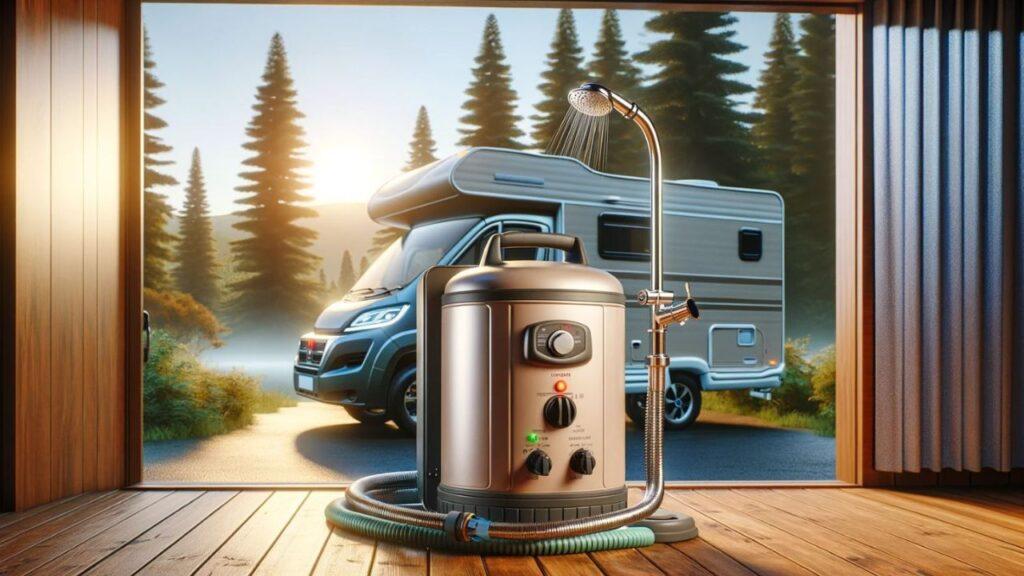
Owning an RV offers the freedom to explore the open road with the comforts of home. However, one crucial aspect of maintaining your RV is ensuring the longevity of its battery. A well-maintained battery is essential for a reliable power supply, whether you’re camping off-grid or parked in a campground. Here are seven tips for maintaining the longevity of your rv’s battery and extend its lifespan.
Understanding Your RV’s Battery
Before diving into maintenance tips, it’s important to understand the type of battery your RV uses. Most RVs use either lead-acid batteries, which are common and affordable, or lithium-ion batteries, which are more expensive but offer longer life and better performance and other cases RV deep cycle batteries. Knowing your battery type helps tailor your maintenance approach. Lead-acid batteries, for example, require regular checking and topping off with distilled water, whereas lithium-ion batteries require less maintenance but need proper handling to avoid damage.
Regular Inspection and Cleaning
Regular inspections are crucial for maintaining battery health. Start by checking for any signs of corrosion on the terminals, which can impede performance. Corrosion appears as a white or blueish powdery substance on the battery terminals and connections. If left unchecked, it can lead to poor conductivity and eventual failure of the battery.
Cleaning the battery is equally important. Use a mixture of baking soda and water to neutralize any acid buildup on the terminals. A wire brush can help remove corrosion effectively. Make sure to disconnect the battery before cleaning to prevent any electrical accidents. Regular cleaning not only ensures good electrical contact but also helps in spotting potential issues like cracks or leaks in the battery casing.
Proper Charging Practices
Charging your RV battery correctly is vital for its longevity. Invest in a quality RV battery charger maintainer that is compatible with your specific battery type. Automatic chargers are highly recommended as they prevent overcharging by switching to a maintenance mode once the battery is fully charged.
Overcharging and undercharging are both harmful to the battery. Overcharging generates excessive heat and can damage the battery cells, while undercharging allows sulfation to build up on the battery plates, reducing its capacity. Using a smart charger helps maintain the correct charge level and protects the battery from damage.
Maintain Proper Water Levels
If your RV uses lead-acid batteries, it’s crucial to maintain the proper water levels. Check the water levels regularly, especially after charging, as the electrolyte levels can drop. Only use distilled water to top up the battery. Tap water contains minerals that can contaminate the electrolyte and reduce battery efficiency.
The water should cover the battery plates, but be careful not to overfill. Overfilling can cause the electrolyte to overflow, leading to corrosion and loss of battery acid. Always wear protective gear when handling battery acid to avoid injuries.
Store the Battery Correctly
When not using your RV for extended periods, proper storage of the battery is essential. Start by fully charging the battery before storing it. A discharged battery can freeze in cold temperatures, causing irreparable damage. Store the battery in a cool, dry place to prevent any deterioration.
Using a battery maintainer, also known as a trickle charger, can be very beneficial during storage. This device keeps the battery charged by providing a low, steady charge, preventing it from discharging over time. This ensures that your battery is ready for use whenever you decide to hit the road.
Temperature Management
Batteries perform best within a specific temperature range. Extreme temperatures, whether hot or cold, can significantly impact battery performance and lifespan. In hot weather, excessive heat accelerates the chemical reactions inside the battery, leading to increased self-discharge and potential damage to the battery cells.
In cold weather, the battery’s capacity can decrease, and a fully discharged battery can even freeze, causing permanent damage. To manage temperatures, consider using an insulated battery box or wrap during winter months. In summer, park your RV in shaded areas to avoid excessive heat buildup. Proper temperature management ensures that your battery remains in optimal condition throughout the year.
Regular Use and Maintenance
Batteries benefit from regular use. If your RV remains idle for long periods, periodically discharging and recharging the battery helps maintain its capacity and prevents sulfation in lead-acid batteries. This process, known as exercising the battery, ensures that it remains functional and ready for use.
Monitoring the health of your battery is also important. Invest in a RV battery monitor to keep track of the state of charge and overall health. This device provides real-time data, helping you avoid deep discharges and identify any issues early. Regular maintenance and monitoring can significantly extend the life of your RV’s battery.
Use Solar Power
Solar panels are an excellent investment for RV owners. They provide a steady, renewable source of power, keeping your battery charged without relying solely on shore power or a generator. Installing solar panels can be a DIY project if you’re comfortable with electrical work, but consulting a professional ensures proper installation and avoids potential issues.
A solar charge controller is essential when using solar panels. This device regulates the power from the solar panels to the battery, preventing overcharging and ensuring optimal battery performance. Utilizing solar power not only extends the life of your battery but also reduces your reliance on other power sources.
Wrapping It Up!
Proper maintenance of your RV’s battery is essential for a hassle-free and enjoyable travel experience. By following these seven tips—regular inspection and cleaning, proper charging practices, maintaining water levels, correct storage, temperature management, regular use, and utilizing solar power—you can significantly extend the lifespan of your RV’s battery. A well-maintained battery ensures you have reliable power, allowing you to make the most of your adventures on the road.
Related FAQs
How often should I inspect my RV battery?
You should inspect your RV battery at least once a month. Regular inspections help you catch potential issues early, ensuring your battery remains in good condition.
What type of water should I use to top off my lead-acid battery?
Always use distilled water to top off your lead-acid battery. Tap water contains minerals that can interfere with the battery’s chemical processes.
Can I leave my RV battery connected during storage?
It’s best to disconnect your RV battery during long-term storage to prevent it from discharging. Using a battery maintainer can help keep it charged while in storage.
How do I know if my battery is overcharging?
An overcharged battery often feels hot to the touch and may emit a sulfur smell. Using an automatic or smart charger helps prevent overcharging.
Is it necessary to use a battery monitor?
While not strictly necessary, a battery monitor provides valuable information about your battery’s health and state of charge, helping you manage it more effectively.
Can I install solar panels myself?
Yes, installing solar panels on an RV can be a DIY project if you’re comfortable with electrical work. However, consulting a professional ensures proper installation and avoids potential issues.
As outdoor enthusiasts ourselves, we understand the significance of reliable gear that can withstand the elements and support you throughout your journey. We try to provide as much real life information with our guides and how tos to the readers as possible. Our honest and transparent reviews of essential outdoor gadgets and products are rooted in testing and experience. We take great satisfaction in offering unbiased evaluations, ensuring that you can make informed decisions when investing in outdoor gear. As an affiliate website, we may earn a small commission from some of the products we feature. However, rest assured that our opinions are not influenced by this, and your trust is always our top priority.



